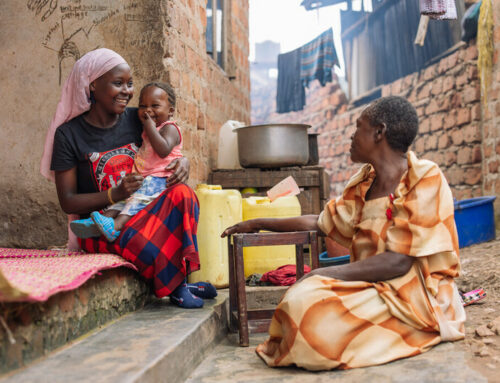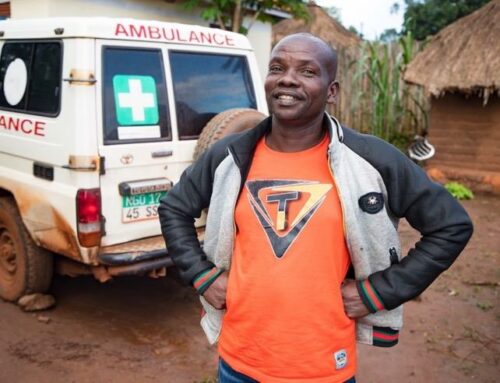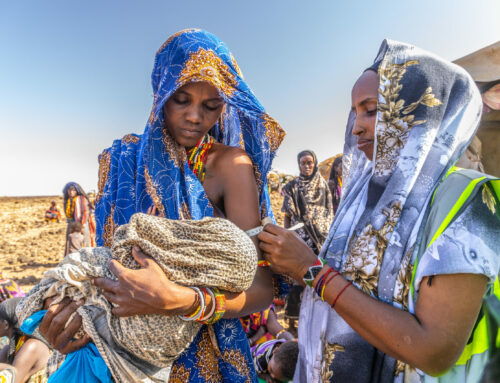Field Updates
Amref Malawi: Helping kids concentrate in class through WASH access!
Story by Wesley Koskei
The Mzenene Early Childhood Development Center is a two-roomed structure where children under five get a jump start in their education. Over a hundred children attend this preschool, but it only had one pit latrine and no clean water source. As a result, children would often leave class to either ask neighboring homes for a cup of water or search for a toilet to use. “In some cases, children would be chased away for being a nuisance [by residents] around the preschool,” says Tereza, one of the teachers.
Tereza has been a teacher at the center since 2018. For her, education is critical for breaking the cycle of poverty. Yet, many early childhood centers still lack access to safe water, adequate sanitation, and improved hygiene (WASH) facilities. Having only one pit latrine with no clean water made sanitation and hygiene a big problem.
“It is tough to manage a school with no water or toilets,” says Tereza. “My greatest fear was that they would get sick if the available water was dirty.” Without clean water to drink or wash their hands, students and teachers risk getting sick from water-borne diseases like diarrhea, trachoma, and scabies.
Being too sick to attend class doesn’t just affect learning; it has a chain reaction! Missing class means families have to stop going to the farms, where they get their primary source of livelihood, to tend to their kids. Most families in rural Malawi are financially strained, and a sick child means the little money they do have will be spent on medicine and doctor visits, leaving them at the mercy of the cycle of poverty.
Fortunately, through our ‘Deliver Life’ project, we are improving health outcomes for children five and under through sustainable WASH solutions in Early Childhood Development Centers to reduce water-borne diseases and child mortality! We recently built a water borehole a few feet away and installed new adult restrooms and separate restrooms for the boys and girls at Mzenene.
Five-year-old Frank attends preschool here. “He’s able to spell his name and write numbers,” his mother, Patricia, remarks. Frank now has access to the boys’ restroom and can wash his hands whenever he wants. Patricia is also happy about the new borehole because it’s not just supporting the school; families can also get water to bring back home. She is glad that her son has water to drink and clean restrooms at the school and doesn’t have to worry about him going to neighbors’ homes.
Tereza says, “before, we had only one toilet for 110 students. It was very difficult for our pupils because they would want to go to the bathroom at the same time, and it was hard to control them, but the construction of these restrooms has lessened our problems. Now, these kids can learn in peace knowing that water is available, toilets are there, and [there won’t be] a scramble!”
With Amref’s new borehole and restrooms, students no longer have to leave class in search of drinking water, teachers can have better control of their classrooms, and most importantly, more kids like Frank can learn letters, numbers, and everything in between, comfortably.
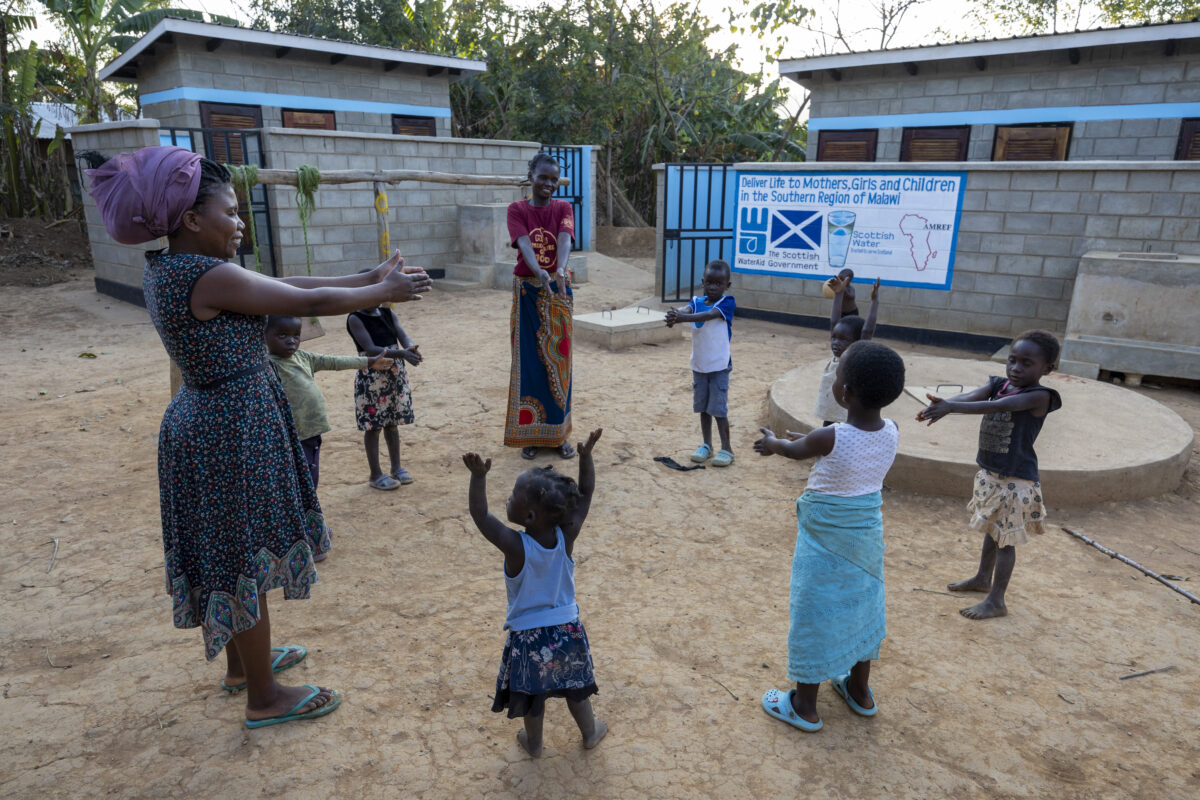
School children and their teachers playing a game together / Photo Credit: David Brazier
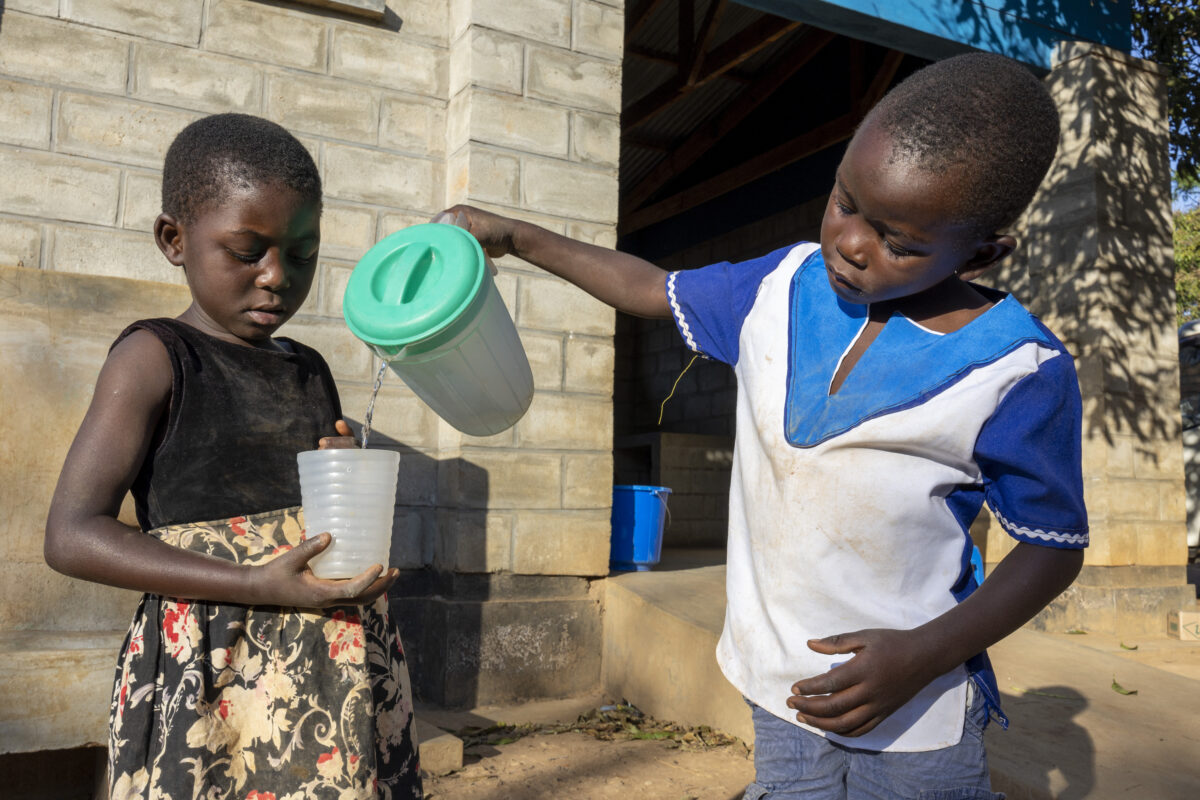
Five-year-old Frank pours water for his classmate Brenda / Photo Credit: David Brazier
